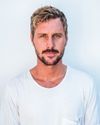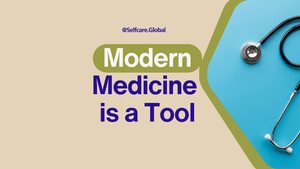"The art of healing comes from nature, not from the physician. Therefore the physician must start from nature, with an open mind." - Paracelsus
I remember standing in the hospital, watching a patient's face transform from pain to relief after receiving medication for their acute condition. In that moment, I wasn't thinking about natural remedies or alternative approaches – I was grateful for the miracle of modern pharmaceuticals that could ease suffering so quickly.
Yet later that same day, I sat with another patient who had been taking 14 different medications for years, treating symptoms while the root causes of their condition remained unaddressed. Two faces of the same medical system – one showing its remarkable power, the other revealing its limitations.
The One Key Message
Modern medicine isn't the enemy – it's simply one tool in our complete healthcare toolkit. The real challenge is knowing when to use which tool, and how to integrate them for optimal wellbeing.
What if I told you that the choice between conventional and alternative medicine is a false dichotomy? What if the most powerful approach is learning when and how to use each approach appropriately?
The 3 Major Challenges We're Here to Solve Together
- The All-or-Nothing Trap: Many of us fall into extreme positions – either trusting only pharmaceutical interventions or rejecting modern medicine entirely. This polarized thinking limits our healing potential.
- The Root Cause Blindspot: Conventional medicine excels at treating symptoms but often misses underlying imbalances that, when addressed, could eliminate the need for ongoing medication.
- The Integration Struggle: Even when we recognize the value of both approaches, we lack a framework for integrating them effectively in our personal health journeys.
Would you be open to exploring a middle path that honors both the life-saving power of modern medicine and the transformative potential of lifestyle-based approaches? Join our Self-Care Community where thousands are learning this balanced approach together.
The SelfCare Framework: Learn-Do-Embody-Teach
This balanced perspective on medicine is perfectly aligned with our four-step framework:
1. LEARN: Understanding Medicine's True Purpose
The purpose of medicine – whether conventional or alternative – isn't merely absence of disease but presence of vitality. Modern medicine's greatest strength is acute intervention; lifestyle medicine's is prevention and root cause resolution. Both have their place.
The research clearly shows that countries with the best health outcomes don't choose between approaches – they integrate them strategically. According to the World Health Organization, integrative health systems that combine conventional medicine with evidence-based complementary approaches produce better overall outcomes than either approach alone.
2. DO: Practical Integration Steps
What if making this shift was easier than you think? Here are three simple ways to start integrating conventional and alternative approaches:
- Create Your Medicine Map: For any health concern, identify where it falls on the acute-chronic spectrum, then match appropriate tools – pharmaceutical for acute crisis, lifestyle-based for chronic conditions, and sometimes both during transitions.
- Build Your Healthcare Team: Instead of choosing between a conventional doctor OR alternative practitioners, build relationships with professionals from multiple disciplines who respect each approach's value.
- Practice the "Both/And" Mindset: When considering treatment options, replace "either/or" thinking with "both/and" exploration. Ask: "How might these approaches work together?"
May I ask – which of these three practices resonates most with you right now?
If you're curious about implementing these principles more deeply, the SelfCare book provides detailed guidance on creating your personal medicine integration plan.
3. EMBODY: Becoming a Healthcare Navigator
Imagine moving beyond merely following doctors' orders or alternative protocols to becoming the informed navigator of your own healthcare journey. This isn't about rejecting expert advice – it's about contextualizing it within your unique health story.
When you embody this balanced perspective, you'll notice:
- Your anxiety around health decisions diminishes
- Your conversations with healthcare providers become more productive
- You naturally gravitate toward the right intervention at the right time
- Your body becomes more responsive to all forms of medicine
Remember: The most powerful healing occurs when you stop seeing approaches as competing and start seeing them as complementary.
4. TEACH & IMPACT: Creating Ripples of Balanced Healing
Once you've experienced the power of this integrated approach, you naturally become a bridge-builder in a polarized health world. Your balanced perspective creates ripples:
- Family members become more open to appropriate interventions they previously rejected
- Friends struggling with chronic conditions discover new possibilities
- Healthcare providers respond differently to a patient who understands integration
- Communities begin healing the unnecessary divide between medical paradigms
What if your journey toward balanced medicine could help heal not just your body, but our fragmented healthcare approach?
Your Next Step: From Confusion to Confidence
The journey from medical confusion to confident integration isn't about acquiring more information – it's about developing a new framework for the information you already have.
Would you be curious to discover how thousands of others are navigating this balanced path? Join our Self-Care Community where we're having these conversations daily.
And if you're ready to dive deeper into this and the other 11 medicines of self-care, grab your copy of the SelfCare book – your complete guide to integrated wellbeing.
Key Research References:
- Institute of Medicine (US) (2009). Integrative Medicine and the Health of the Public: A Summary of the February 2009 Summit. Washington (DC): National Academies Press.
- Kienle, G. S., Albonico, H. U., Baars, E., Hamre, H. J., Zimmermann, P., & Kiene, H. (2013). Anthroposophic medicine: an integrative medical system originating in Europe. Global advances in health and medicine, 2(6), 20–31.
- World Health Organization. (2023). WHO global report on traditional and complementary medicine. Geneva: World Health Organization.
REFERENCES
This is directly referenced from the Amazon best-selling SelfCare Book "Lifestyle Medicine For the People" by Rory Callaghan. If you would like to read more content like this, grab the free online chapters of the book or a hard copy.
We have done our best to reference everyone's expert opinions, peer-reviewed science, and original thoughts, all references available here and referenced in the text.
We also understand that most thoughts are not our own and there is a collective unconsciousness, unconsciousness, and universal mind stream of energy that is always at work. How our references are sorted and filtered is here.
This article is for informational purposes only and should not replace professional medical advice. Always consult with your healthcare provider before beginning any new health regimen.



